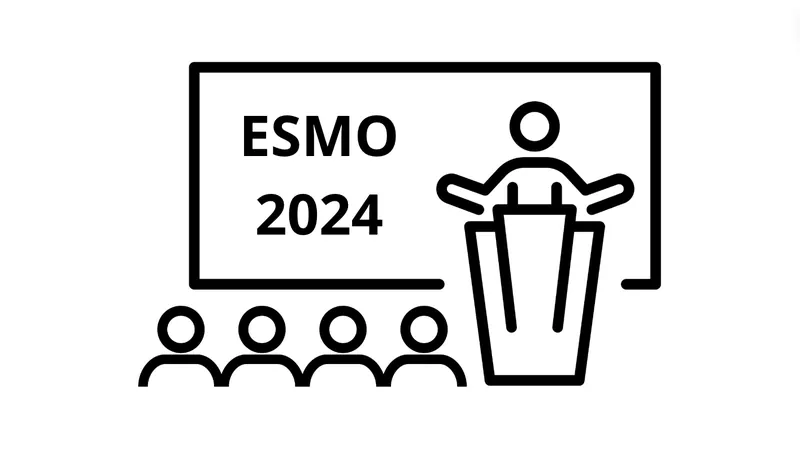
Breakthrough in Nasal and Paranasal Sinus Cancer Treatment: Neoadjuvant Therapy Shows Promise!
2024-09-18
Introduction
In an exciting development for nasal and paranasal sinus cancer patients, recent findings from the phase 2 EA3163 trial presented at the 2024 ESMO Congress indicate that neoadjuvant chemotherapy followed by postoperative radiation therapy (PORT) might enhance organ preservation rates for patients suffering from T3 and T4a nasal and paranasal sinus squamous cell carcinoma (NPNSCC). This trial is a beacon of hope for those facing the challenges of these aggressive forms of cancer.
Trial Results
The trial's results highlighted that patients categorized with T3 or T4a disease exhibited a significant structural preservation (SP) rate of 33%, with the neoadjuvant chemotherapy group achieving a remarkable 57% and the control group standing at just 18%. Although the difference did not reach statistical significance (P = .14), these findings nevertheless underline the potential benefits of integrating neoadjuvant chemotherapy into treatment protocols.
Diverse Patient Cohort
As part of the study, a diverse cohort of patients was involved; among those with T4b disease included in the overall evaluation, the SP rate was observed at 30%. The rates for the neoadjuvant and control arms diverged at 50% and 15%, respectively (P = .17), further suggesting that neoadjuvant chemotherapy could be a viable option for improving outcomes in this challenging patient population.
Expert Insights
Dr. Nabil Saba, the lead author of this pivotal research from the Winship Cancer Institute at Emory University, explained the complexity of treating NPNSCC due to its proximity to critical structures like the orbit, skull base, and central nervous system. The inquiry arose partly from the difficulties physicians face in treating high-stage tumors that often necessitate sacrificing these vital organs, heightening patient risk.
Study Limitations
Despite recruitment challenges leading to an underpowered study, the trial indicated a positive upward trend in SP rates for patients undergoing neoadjuvant chemotherapy, particularly among those with resectable T3 and T4a diseases. The trial's primary aim was to assess the efficacy of neoadjuvant therapy in improving surgical outcomes for patients at risk of organ loss.
Trial Design and Patient Data
The EA3163 study involved a multicenter, randomized approach enrolling individuals with high-stage NPNSCC requiring surgical intervention. Patients received either surgery alone followed by PORT with or without cisplatin, or neoadjuvant chemotherapy consisting of three cycles of docetaxel and either cisplatin or carboplatin, with subsequent surgery and radiation.
Among a total of 29 patients enrolled, 25 were evaluated, with a median age of 63.4 years. A significant majority (91%) exhibited base of skull involvement and 61% presented orbital involvement. The data collected revealed that the overall preservation of the orbit in evaluable patients was 57%, showing promise particularly with neoadjuvant chemotherapy, which recorded a 70% preservation rate compared to 46% in the control group.
Survival Rates
While overall survival (OS) rates data from the trial remain continuing to evolve, preliminary estimates indicate a strong survival rate among those who underwent neoadjuvant chemotherapy, with 90.0% noted in this arm compared to 90.9% in the standard treatment group.
Conclusion
In summary, the EA3163 trial illuminates the potential advantages of neoadjuvant chemotherapy for patients with advanced NPNSCC, paving the way for new treatment paradigms that could change the landscape of care for this challenging cancer type. The ongoing evaluation of survival outcomes and further studies will be pivotal in determining the long-term effectiveness and safety of this promising approach.
Stay tuned for more updates on this groundbreaking research!


 Brasil (PT)
Brasil (PT)
 Canada (EN)
Canada (EN)
 Chile (ES)
Chile (ES)
 España (ES)
España (ES)
 France (FR)
France (FR)
 Hong Kong (EN)
Hong Kong (EN)
 Italia (IT)
Italia (IT)
 日本 (JA)
日本 (JA)
 Magyarország (HU)
Magyarország (HU)
 Norge (NO)
Norge (NO)
 Polska (PL)
Polska (PL)
 Schweiz (DE)
Schweiz (DE)
 Singapore (EN)
Singapore (EN)
 Sverige (SV)
Sverige (SV)
 Suomi (FI)
Suomi (FI)
 Türkiye (TR)
Türkiye (TR)